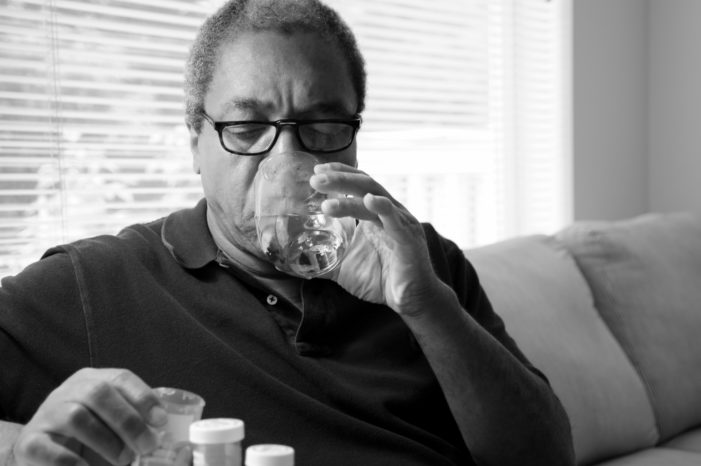Opioid addiction has reached crisis level in Michigan, and the nation, and it is close to home for too many. In many cases someone suffering from this illness is living in the home or right next door.
It’s tragic. It’s one of the foremost health crises in the U.S.It’s ripping families apart and sending many to an early grave.
More than 40 Americans die each day from overdoses involving prescription opioids, says the U.S. Centers for Disease Control and Prevention.
In Michigan the number of total drug overdose deaths increased by 18 percent in 2016 and the majority of overdoses were related to opioids, according to new provisional data from the Michigan Department of Health and Human Services (MDHHS).
The economic cost is also huge. Opioid abuse costs the U.S. economy $78.5 billion a year, according to 2016 study by the CDC. That includes direct health care costs, lost productivity and costs to the criminal justice system.
To try and reverse the trend MDHHS has launched a media campaign to raise awareness about the dangers of opioid misuse, the treatment options available, and educate the public about proper storage and disposal of prescription drugs.
“The addiction epidemic continues to take lives and hurt families in every corner of our state and our country,” says Lt. Gov. Brian Calley. “While many initiatives are underway to address this crisis, it’s clear that we have to work harder to reverse this tragic trend. Working together on treatment and prevention efforts will ultimately lead to more second chances and fewer funerals.”
In Michigan, the number of heroin-related overdose deaths per 100,000 residents increased from 1.1 in 2007 to 7.5 in 2015. Of the 2,335 overdose deaths in 2016, 1,689 were opioid-related, up from 1,275 opioid-related deaths in 2015.
The public awareness campaign is part of Michigan’s extensive efforts to address opioid addiction and overdoses.
Michigan recently issued a standing order to pre-authorize the distribution of naloxone by pharmacists to eligible individuals. Naloxone is a fast-acting, potentially life-saving medication that reverses opioid overdose. Since it was issued, more than 700 (25 percent) of Michigan pharmacies have registered to dispense naloxone under the standing order.
In April Michigan received more than $16 million in Opioid State Targeted Response (STR) funds from the Substance Abuse and Mental Health Services Administration. The grant is being used to promote prevention and increase access to treatment by funding State of Michigan initiatives, including:
- Michigan’s Prescription Drug Monitoring Program
- Development of a statewide awareness campaign
- Medication Assisted Treatment (MAT)
- Prevention services and strategies
- Improving the availability of Naloxone
- Increasing peer supports, provider supports, tribal supports, and support of law enforcement
- Providing a new model for prison re-entry services for people with Opioid Use Disorder and mental illness
- Collaboration with university partners on re-entry, evaluation, and research opportunities
The MDHHS public awareness campaign includes a variety of media placements, including TV, radio, digital, social media, and direct provider outreach. The TV and radio spots are available on the MDHHS YouTube channel.
The fight against the opioid epidemic is an everyday matter of life or death for many Michigan residents,” says Dr. Debra Pinals, MDHHS chief psychiatrist
To learn more about prescription drugs and opioids, or for resources on opioid addiction, visit www.michigan.gov/stopoverdoses.
See additional related coverage:
Killing Pain: Advocates join health and police agencies in opioid battle
Opioid abuse explosion brings new opportunity for solutions, health agency says
Lead image by Oscar C. Wilde/Shutterstock, Inc.


